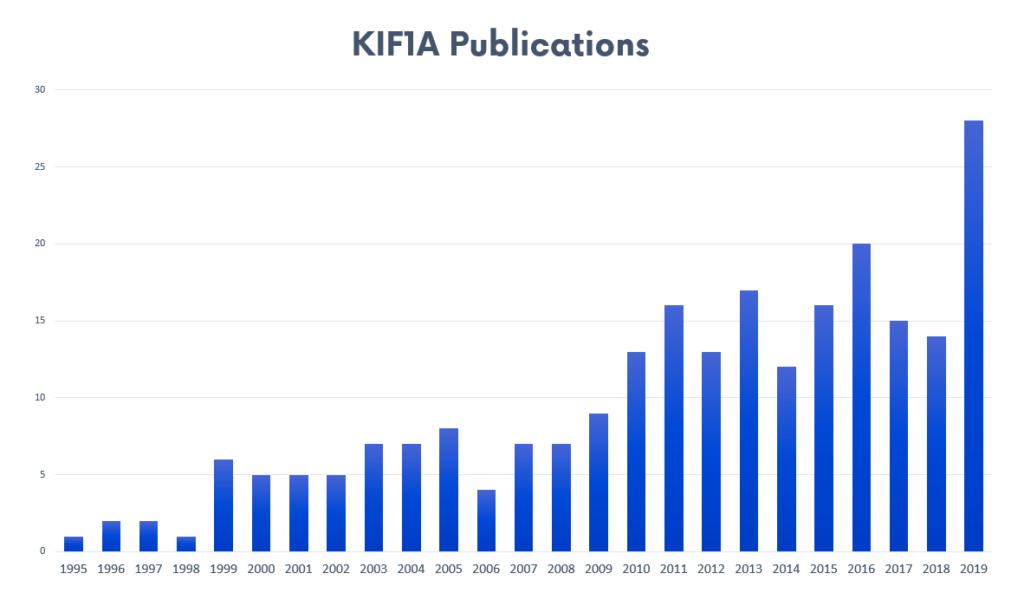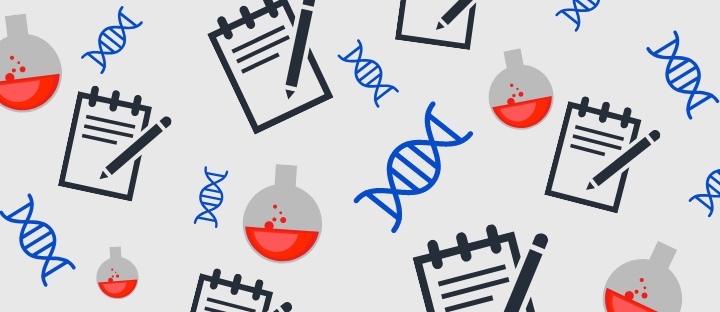#ScienceSaturday posts share relevant and exciting scientific news with the KAND community, and are compiled by Alejandro Doval. Alejandro is from Spain and serves as Team Leader of the KIF1A.ORG parent-led Research Engagement Team. Send news suggestions to our team at impact@kif1a.org.
KIF1A-Related Research
Looking Back & Marching Forward
According to PubMed.gov, researchers published 28 papers in 2019 that included KIF1A. That’s more than any other year since KIF1A was first referenced in research in 1995. KIF1A research really began to pick up in 2010 and 2011, when the first KIF1A patients were identified. You can search PubMed.gov here to have a look at KIF1A research over the years. We’re expecting to see significant KIF1A research coming out in early 2020. Hopefully 2020 will break the 2019 record.

Rare Disease News
Amylyx Pharmaceuticals Announces AMX0035 Demonstrated Statistically Significant Treatment Benefit for People with ALS in the CENTAUR Trial
In the CENTAUR clinical trial for ALS, participants showed “significant slowing of ALS disease progression.” This press release highlights the trial’s success, and the close collaboration Amylyx Pharmaceuticals has with patient advocacy groups.
Dr. Neil Thakur of The ALS Association noted, “We are proud to have supported AMX0035 and Amylyx from an early stage and are very excited about what AMX0035 may accomplish for people with ALS. This company and study team have focused on the patient perspective during the design and conduct of this study and we are happy to work with and innovate together with them.”
This is a powerful example of how the patient community can drive progress by supporting and engaging in research.
A new gene therapy strategy, courtesy of Mother Nature
“Scientists have developed a new gene-therapy technique by transforming human cells into mass producers of tiny nano-sized particles full of genetic material that has the potential to reverse disease processes. … ‘Think of them like Christmas gifts: The gift is inside a wrapped container that is postage paid and ready to go,’ said senior study author L. James Lee…”
“Because of exosomes’ safe access to the brain, this drug-delivery system has promise for future applications in neurological diseases such as Alzheimer’s and Parkinson’s disease.”
L. James Lee, The Ohio State University
Zooming in on brain circuits allows researchers to stop seizure activity
“A team of neuroscientists at Georgetown University Medical Center have found, in animal models, that they can ‘switch off’ epileptic seizures. … Zeroing in on specific neurons suggests that treatment for epilepsy can be improved …
‘We can’t target therapy if we don’t know how the circuits work. Discovering that silencing one area that a SNpr [an area of the brain] projects to can turn off specific seizures suggests a much more targetable therapy,'” said the study’s senior investigator, Dr. Patrick A. Forcelli.
New technology allows control of gene therapy doses
“Scientists at Scripps Research in Jupiter have developed a special molecular switch that could be embedded into gene therapies to allow doctors to control dosing. … The simplicity of the technique, and the fact that morpholinos are already FDA-approved, could allow the new transgene switching system to be used in a wide variety of envisioned gene therapies.”


